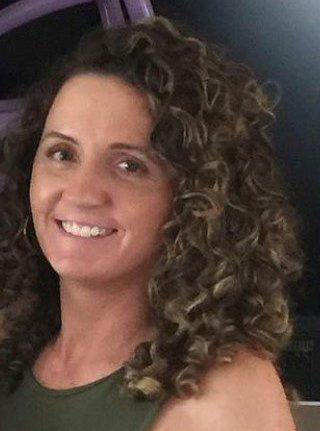Welcome to our newest blog series, “Five Questions With…” In this series, we will highlight the unsung heroes that make healthcare work. From guest services to the phlebotomist, the pet therapy volunteer, and the environmental services workers. These individuals enhance our experiences when we are getting care and highlight human connection and support. Thank you for all you do!
Today, we feature Amber. Amber has been a Medical Dosimetrist at Penn Medicine Radiation Oncology for five years.
Tell us more about what you do to support patients.
As a medical dosimetrist, I work mainly behind the scenes developing the treatment plans for radiation therapy. I am part of a team including radiation oncologists, medical physicists, and radiation therapists that work towards delivering the best, most advanced, and safest treatments to our patients.

Is there one particular story that sticks out in your head about a patient you can share?
When I first began at Penn there was a young girl around my daughter’s age that was coming in for radiation. I had not been exposed to pediatric cancer care at that time and did not know what to expect from such a young patient. This young girl’s strength and courage were both inspiring and admirable. I realized at that moment the importance of my role and what we as a team were doing to help these patients. It really hit home that the patients we see are somebody’s loved ones and are deserving of the type of care we would expect our own families to receive.
What is the most challenging part of your job?
The most difficult aspect of the job is working on a plan for patients in palliative care. We often see patients whose lives we are trying to save with the goal of remission but unfortunately, that is not always the case. It can be hard knowing what lies ahead for these patients but hopefully, we can help make them comfortable, and in some cases prolong their lives.
What is the thing you love the most about your job?
The thing I love most about being a medical dosimetrist is having the opportunity to help people during one of the most difficult times in their lives. Knowing that I am part of a team doing everything we can to help our patients is the most rewarding part of my job. I also enjoy learning from my peers and teaching newer dosimetrist entering the field. The knowledge we share with one another is key to making our team successful and thus allowing us to give our patient’s the best care we can.
If someone was applying for a similar position, what would you tell them about the work?
Being a medical dosimetrist is a unique and exciting career. It combines physics, anatomy, and biology into one. Medical dosimetrists are part of a large team in the radiation oncology field. We work together to deliver safe and effective treatments. Working for Penn has allowed me to see unusual and challenging cases and has provided me the opportunity to grow in my career.
Do you want to nominate a staff member, volunteer, co-worker, or friend for us to feature in “Five Questions With…” Go to oncolink.org/feedback and let us know!